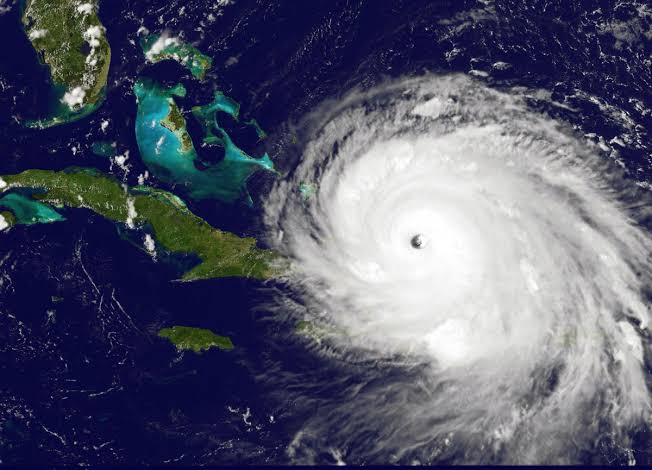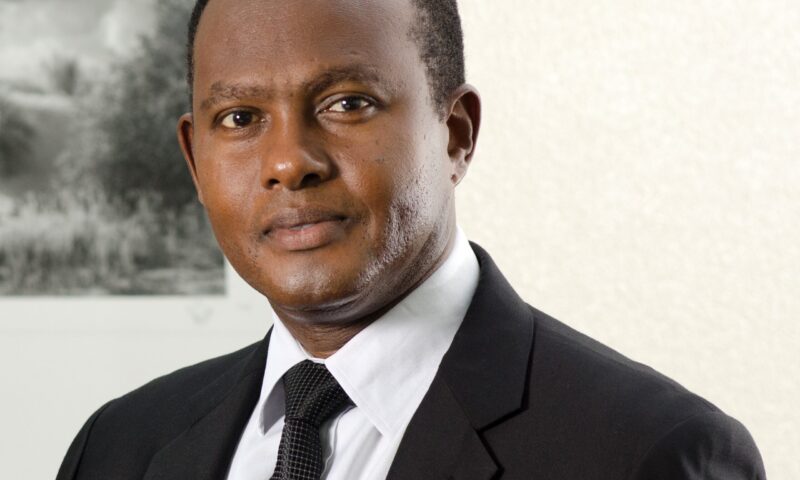All Posts in "Day: October 31, 2020"
Nigeria’ s commitment to transform into full digital economy
The Nigerian government has reiterated its commitment to transform the country into a fully digital economy, calling on all the agencies under the Ministry of Communications and Digital Economy and other industry stakeholders to key into the quest.
Speaking on behalf of the federal government at the maiden edition of Digital Nigeria Day (DND) 2020 hosted by the Federal Ministry of Communications and Digital Economy, the Minister of Communications and Digital Economy, Dr. Isa Pantami, said the government led by President Muhammadu Buhari has re-emphasized its unflinching commitment to support the drive to leverage Information and Communication Technology (ICT) to transform Nigeria into a fully digital economy.
At the industry stakeholders with the theme: ‘Digital Economy : A new Frontier for Economic Prosperity’, Pantami narracted that, following the name change of the ministry to reflect the new vision of the Federal Government for a truly digital economy, the Ministry, in collaboration with its agencies and industry players, have worked tirelessly to develop policy document in this direction.
Based on this, Dr. Pantami cited the World Economic Forum (WEF) report, which documents the huge economic potentials of digital economy has developed the National Digital Economy Policy and Strategy (NDEPS) 2020-2030, the Nigerian National Broadband Plan (NNBP), 2020-2025 and several other policy initiatives to ensure effective digitisation of the Nigerian economy both from public and private sector perspectives.
He also listed the various initiatives the Ministry of Communications and Digital Economy has embarked upon in the last one year, disclosing the Ministry’s efforts have culminated in impressive 17 per cent ICT contribution to the country’s Gross Domestic Product (GDP) by the second quarter of 2020.
”These efforts are a testament to ongoing effective implementation of the digital economy policies already put in place,” he said.
Meanwhile, according to the Minister, some of the challenges in the industry are being collaboratively addressed with emphasis on provision of digital skills to Nigerians and ensuring the citizens are protected online in line with our mandates as a Ministry.
In their goodwill messages, the Executive Vice Chairman of Nigerian Communications Commission, Prof. Umar Danbatta, restated his resolve to work with the Ministry towards achieving the digital economy vision of the Federal Government.
In particular, Danbatta, being the Co-Chair, organising committee for the event, thanked the Minister for his pragmatic leadership, which is enhancing the performance of the ICT industry in Nigeria. “We are confident that achieving targets of the digital economy policy and broadband policy will help us achieve increased digital access, reduce digital divide, enhance digital culture and ultimately ensure the realisation of a knowledge-based economy for the country,” Danbatta said.
Representatives of industry associations such as the Association of Telecoms Companies of Nigeria (ATCON), Association of Licensed Telecoms Companies of Nigeria (ALTON), Institute of Software Practitioners of Nigeria (ISPON), Nigeria Computer Society (NCS) and Certified ICT Manufacturers of Nigeria (CIMON) delivered their goodwill messages, promising their continuous support to government initiatives and policies towards driving the frontiers of digital economy for Nigeria’s socio-economic prosperity.
Natural disasters claims 1.23m lives in 20 years
Extreme weather events have increased dramatically in the past 20 years, taking a heavy human and economic toll worldwide, and are likely to wreak further havoc, the United Nations has said
The natural disasters such as drought, floods, earthquakes, tsunamis, wildfires and extreme temperature events caused major damage over the last 20years while it was said to have claimed 1.23million lives with a total of 4.2billion people affected in 7,348 events coating over $3billion
The United Nations Office for Disaster Risk Reduction (UNDRR) is making an alarming assessment. The number of natural disasters has doubled over the last two decades (2000-2019). Hence, 7 348 events with an estimated cost of 3 000 billion USD have been reported.
The number of climatic disasters, which amounted to 3 656 during the 1980-1999 decade, has increased by 83 percent to reach 6 681 over the 2000-2019 period. Floods and storms are the most frequent climatic events.
According to the same source, natural disasters have claimed the lives of 1.23 million people in twenty years, an increase of 3.4 percent in comparison with the 1980-1999 period. Even worse, the population affected by disasters is up by 23.1 percent going from from 3.25 billion to 4 billion people.
Heatwaves and droughts will pose the greatest threat in the next decade, as temperatures continue to rise due to heat-trapping gases, experts said.
China (577) and the United States (467) recorded the highest number of disaster events from 2000 to 2019, followed by India (321), the Philippines (304) and Indonesia (278), the U.N. said in a report issued the day before the International Day for Disaster Risk Reduction. Eight of the top 10 countries are in Asia.
“The good news is that more lives have been saved but the bad news is that more people are being affected by the expanding climate emergency,” Mami Mizutori, the U.N. Secretary-General’s Special Representative for Disaster Risk Reduction, told a news briefing.
She called for governments to invest in early warning systems and implement disaster risk reduction strategies.
Debarati Guha-Sapir of the Centre for Research on the Epidemiology of Disasters at the University of Louvain, Belgium, which provided data for the report, said: “If this level of growth in extreme weather events continues over the next twenty years, the future of mankind looks very bleak indeed.
“Heatwaves are going to be our biggest challenge in the next 10 years, especially in the poor countries,” she said.
Last month was the world’s hottest September on record, with unusually high temperatures recorded off Siberia, in the Middle East, and in parts of South America and Australia, the European Union’s Copernicus Climate Change Service said.
Global temperatures will continue to warm over the next five years, and may even temporarily rise to more than 1.5 degrees Celsius above pre-industrial levels, the World Meteorological Organization (WMO) said in July. Scientists have set 1.5C (2.7 Fahrenheit) as the ceiling for avoiding catastrophic climate change.
More firms turning into insurance captives as market tightens
More organizations are using captives for insurance protection and financial flexibility in response to today’s risk and insurance landscape.
In its 2020 captive report, insurance broker Marsh says that that tightening global insurance market conditions throughout 2019 led to higher captive utilization with steep premium volume growth in several coverage lines.
For example, supply chain, business interruption, and contingent business interruption premiums written by Marsh-managed captives rose 283% on average in 2019.
All-risk property premiums rose 64% on average, led by the energy and financial institutions sectors, which saw all-risk property premiums rise 151% and 104%, respectively.
The trend towards greater captive use has continued in the first half of 2020 amid increasingly challenging insurance market conditions and the impact of the global COVID-19 pandemic, Marsh said.
Marsh said it formed a record 76 new captive insurance companies from January through July this year, up over 200% compared to the same period in 2019.
“While none of the new captives formed so far in 2020 specifically cover pandemic-related losses, organizations are using their captives to help navigate them through the global COVID-19 pandemic,” according to Ellen Charnley, president of Marsh Captive Solutions.
“Financial flexibility is one of the key advantages of owning captives, and since March 2020, Marsh has helped owners free $3 billion from their captives using short-term liquidity tactics, such as intercompany lending, to help them respond to cash-flow challenges brought on by the pandemic,” she said.
Marsh’s 2020 Captive Landscape Report: Captives Offer Value in Uncertain Times report is based on approximately 1,240 Marsh-managed captives around the world that agreed to share their data on an anonymous and aggregated basis.
Emirati Insurance Authority merges with Central Bank
The Emirati government has taken a decision to merge the Insurance Authority with the Central Bank.
The Emirati government decided to merge the Insurance Authority with the Securities and Commodities Authority (SCA).
The UAE’s Insurance Authority has been has merged with the country’s central bank, Dubai Ruler Sheikh Mohammed bin Rashed Al-Maktoum announced on Twitter.
“Today we issued a decision to merge the Insurance Authority with the Central Bank and transfer all the powers of the Securities and Commodities Authority, operational and executive, to the local stock markets, while the Authority maintains regulation and oversight of the local financial markets,” he said.
This involves transferring all the powers of the Securities and Commodities Authority (SCA) to the local stock markets.
This merger establishes one single regulatory body specialising in the oversight and supervision of the non-bank financial sector comprising the capital market, futures exchanges and the insurance sector.
The purpose of this transaction is to increase the efficiency of the insurance sector and the competitiveness of the Emirati financial markets.
It should be recalled that in July 2020, the government merged the insurance regulatory authority with the Securities and Commodities Authority (SCA).
Africa Re sets to train young reinsurance professionals
Africa Reinsurance Corporation, Africa Re, has launched the 2021 Young Insurance Professionals Annual Program.
The 13-module program gives access to a nine-month online training course on reinsurance technical accounting, claims management and marine reinsurance.
The training targets the citizens of Africa Re’s member states (aged 32 years or less). The application deadline is on 15 November 2020.
Successful candidates will be sent an email before 22 January 2021 and shall start the program in February 2021.
The training is designed in collaboration with the London School of Insurance.
The reinsure has also established its first office outside the continent. The company has settled in the Dubai International Financial Centre (DIFC).
Africa Re Underwriting Agency Limited will provide conventional and Takaful reinsurance services to the entire Middle East region.
Afirca Re as at 30 June 2020, the reinsurer recorded a turnover of 393.04 million USD: a decrease of 8.99 percent compared to the 431.87 million USD established at the end of June 2019.
Such a decline is due to the depreciation of several African currencies mainly in South Africa, Nigeria, Algeria, Tunisia, …
The net technical result amounted to 5.47 million USD in the first half of 2020 against a loss of 14.32 million USD in 2019.
The net profit showed an increase of 30.09% from 14.39 million USD in 2019 to 18.72 million USD one year later. The combined ratio improved by 6.39 points and was set at 98.21 percent.






